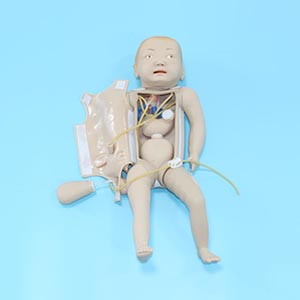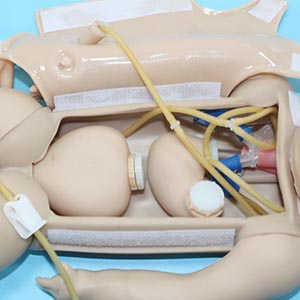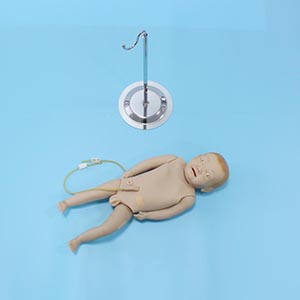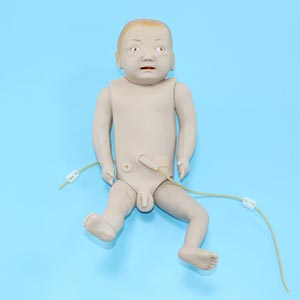17-12-2024
ADA MED SUPPLY LIMITED
Article tag: Advanced Infant Care Model BIX-H140 Medical Care model
In the process of parenting, many parents will find that the needs of babies seem to be endless. From birth, the baby's body and brain are in a stage of rapid development, and care at this time is not just feeding and changing diapers. Is common care adequate to ensure the healthy growth of the baby? In fact, with the development of infant care technology, many parents are beginning to realize that high-quality, professional care is increasingly important, especially during the critical development period of infants.
The diversity of infants' special needs

Baby development is more complicated than we think. Each baby's physical, mental, and emotional development is unique, and this is where the usual care approach is difficult to meet.
1. Physiological development: A baby's body undergoes dramatic changes in the first few months of life, including rapid development of weight, length, immune system, and sensory functions. Ordinary care often focuses on daily physical needs, such as feeding and changing diapers, but this is not enough to deal with the subtle changes in the development of the baby.
2. Emotional needs: In the first few months after birth, infants need to establish a sense of security and emotional attachment through close contact with parents or caregivers. If the care is not meticulous enough, it may affect the emotional development of the baby, which in turn affects the future mental health.
3. Brain development: The baby's brain grows most rapidly in the first three years after birth, especially the formation of language, cognitive and social skills. General care often only focuses on basic physiological needs, and lacks stimulation and guidance for brain development.
Limitations of common care

General care often focuses on providing basic life support, but fails to fully consider the complex needs of a baby as it grows. Let's look at a few key points:
1. Defect identification in the nursing process: General nursing often relies on parents' observation and judgment, but due to lack of experience or limited interpretation of infant physiological signals, it is easy to miss some key health signs. For example, some small physical changes in a baby may just be a sign of some early illness, and general care may not provide adequate monitoring tools to detect these problems.
2. Lack of personalized care: Each baby's needs are different, and common care often takes a "one size fits all" approach. Babies may show different needs during development because of differences in physique, birth mode, and even family environment. It is difficult for common nursing methods to adjust effectively according to these differences.
3. Emotional and cognitive development: Normal care focuses on feeding and basic care, and lacks more interaction, language enlightenment and emotional support, which are integral components of a baby's brain development and emotional health.
The Role of training equipment: How to compensate for the shortcomings of general care?

With the development of technology and medical level, many professional training equipment and auxiliary tools have been able to help parents provide more efficient and accurate infant care. For example:
1. Baby monitoring devices: Many parents use advanced baby monitoring devices that can monitor their baby's temperature, breathing, heartbeat and movement status in real time. For example, some smart cribs and baby monitors can help parents detect any abnormal behavior in their babies in time to ensure that timely action can be taken.
2. Early education toys: Many toys designed for babies can not only help stimulate the baby's sensory development, but also promote the connection of nerves in the brain. These toys help babies develop early language and math skills by providing appropriate cognitive challenges based on their age.
3. Professional nursing equipment: such as baby massager, constant temperature feeding system, etc., these equipment can automatically adjust the temperature, pressure, etc., according to the needs of the baby, to ensure that the baby is fed and cared for in a comfortable environment.
Data support: The advantages of advanced care

According to some parenting research data, the impact of advanced nursing on the healthy development of infants cannot be ignored. For example:
Early health intervention: According to a study on infant care, infants who receive high-quality, professional care have significantly better immune system development than infants who receive ordinary care, and the chance of disease is reduced by more than 30%.
Cognitive and emotional development: Another study of infant brain development found that babies who received personalized care typically scored 20 to 40 percent higher on tests of language, cognitive and social skills than babies who received regular care.
Emotional attachment: According to psychological research, an infant's early emotional connection with their parents is strongly linked to their future mental health. Babies who receive more intensive, professional care tend to do better in terms of emotional attachment and security.
Conclusion: Can General Care meet infant needs?
From the above analysis, it is clear that ordinary nursing can meet the basic needs of infants, but it may not be able to fully support the physical, emotional and cognitive development of infants. Therefore, with the advancement of infant care technology and equipment, more and more parents are beginning to choose more professional care methods. Do you need to upgrade to advanced care? It depends on the needs and conditions of each family, but it cannot be ignored that with the continuous innovation of care equipment, we have the opportunity to provide babies with more precise and efficient support to help them get a better start at an earlier stage in life.